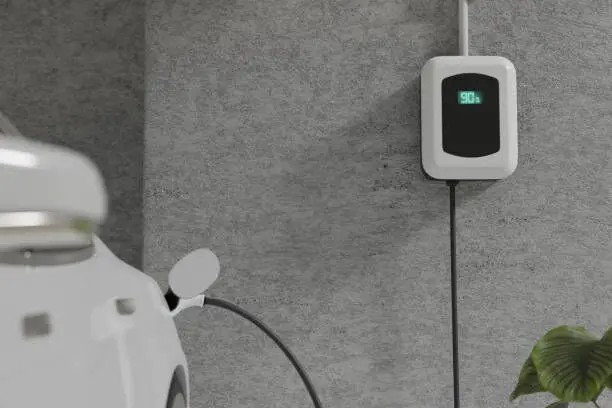Understanding the 40 Amp Level 2 EV Charger: Power, Performance, and Practicality
As a leading EV charger manufacturer in China, LiCB Charge delivers reliable AC and DC electric vehicle charging stations along with comprehensive charging solutions.
As electric vehicles (EVs) become increasingly common worldwide, efficient charging solutions are essential. Among home charging options, the 40 amp Level 2 charger stands out for its balance of speed, power, and affordability. But what makes this charger special, and how fast can it actually charge your EV? Let’s explore the essentials.
What Does “40 Amps” Mean?
An amp (ampere) measures electrical current — the flow rate of electricity, similar to water flowing through a pipe. The higher the amps, the more electricity flows at once.
- A 40 amp charger supplies more current than a 32 amp charger.
- Higher amperage means faster charging, within the limits of your EV’s onboard charger.
How Amps Impact Your Home Electrical System
Your home’s electrical panel distributes amps to all devices. Typical panels handle 100–200 amps total. Running multiple high-amp appliances simultaneously can overload circuits.
A 40 amp EV charger requires:
- A dedicated 240V circuit (usually with a 50 amp breaker).
- Professional installation to ensure safety and code compliance.
- Possible panel upgrades in older homes.
What is a 40 Amp Level 2 Charger?
- Operates on a 240V circuit.
- Delivers up to 9.6 kW of power.
- Charges significantly faster than Level 1 chargers (which use 120V outlets and 12–16 amps).
- Ideal for home, workplace, or public charging, especially for EVs with larger batteries.
Charging Speed Example
For an EV with a 60 kWh battery:
- Power delivered by 40 amp charger = 240V × 40A = 9.6 kW.
- Charging time from empty to full: 60 kWh ÷ 9.6 kW ≈ 6.25 hours.
In practical terms, a 40 amp charger typically adds 25–30 miles of range per hour — perfect for overnight charging or daytime top-ups.
Onboard EV Charger Limits Matter
Charging speed depends not only on the charger but also on your EV’s onboard charger capacity.
- If your EV maxes out at 32 amps, a 40 amp charger won’t speed up charging beyond that.
- Some EVs can accept 48 amps or more, where a 50 amp charger may be better.
Always check your vehicle specs to know your maximum charging rate.
Is a 40 Amp Charger Right for You?
Advantages:
- Faster charging compared to lower-amp chargers.
- Supports EVs with larger batteries (Tesla Model Y, Ford Mustang Mach-E, Hyundai IONIQ 5, etc.).
- Efficient overnight charging with less stress on the battery.
- Future-proofs your home for upcoming EVs with higher charging capacity.
Installation requires:
- A dedicated 240V circuit with appropriate breaker.
- Professional electrician for safe, code-compliant setup.
- Possible electrical panel upgrade in some homes.
Compatibility and Usage
- Most modern EVs support Level 2 charging via the J1772 connector (standard in North America).
- Tesla owners can use a 40 amp charger with a simple adapter.
- Your EV will draw only the current it can handle, so using a 40 amp charger on a lower-capacity EV is safe.
Comparing Popular Chargers
Feature32 Amp Charger40 Amp Charger50 Amp ChargerPower Output (kW)7.7 kW9.6 kW11.5–12 kWTypical Charge Time8–10 hours6–7.5 hours5–6 hoursCircuit Breaker40 amp50 amp60 ampHome Installation CostLowerModerateHigherBest ForDaily chargingBalanced speedFuture-proofing high-end EVs
Frequently Asked Questions (FAQ)
Q: Can I install a 40 amp charger myself?
A: It’s best to hire a licensed electrician to ensure safety and code compliance.
Q: Is a 40 amp charger portable?
A: Most are hardwired or wall-mounted, but some portable Level 2 chargers rated for 40 amps exist.
Q: Will a 40 amp charger damage my car?
A: No. Your EV will only draw as much current as its onboard charger allows.
Q: How much does a 40 amp charger cost?
A: The charger typically costs $400–$800, with installation running $300–$1,200 depending on your home’s setup.
Final Thoughts
A 40 amp Level 2 EV charger offers an excellent blend of charging speed, cost, and compatibility for most EV owners. It’s fast enough for everyday needs and efficient overnight charging, while future-proofing your home for larger batteries and faster EVs.
Whether you’re driving an entry-level EV or a luxury model, a 40 amp charger is a smart investment for convenient, reliable charging at home. Learn more about Google SEO.





Comments